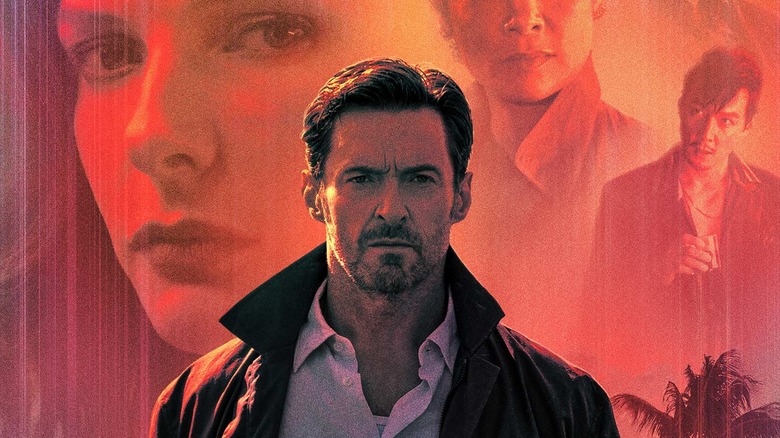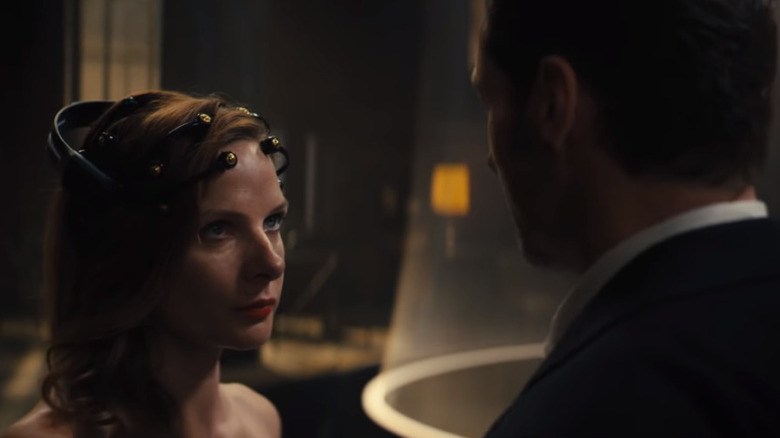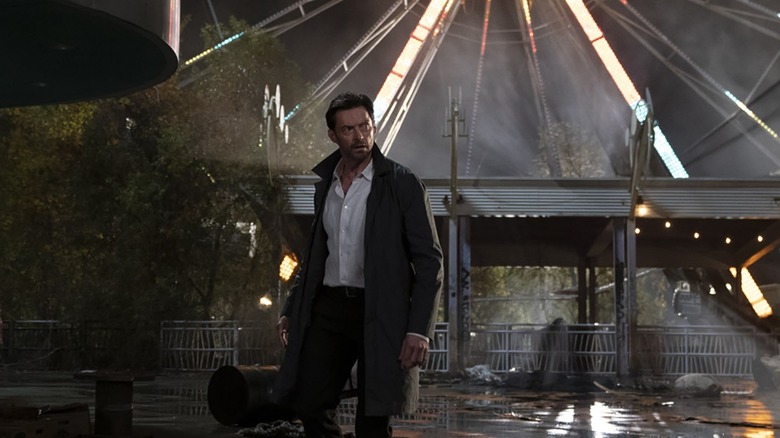Reminiscence Review: God Loves, Nostalgia Kills
Science fiction and film noir make for surprisingly cozy bedfellows, but synthesizing the two is nowhere as easy as it looks. Sure, "Blade Runner" set the standard for this particular chocolate and peanut butter proven mash-up, but just one look at "Reminiscence," the feature directorial debut from "Westworld" co-creator Lisa Joy, calls into question whether such genre meddling is worth the hassle. The film, hitting theaters and HBO Max simultaneously this weekend, is at once the kind of charming throwback Film Twitter complains studios don't make anymore and an uneasy reminder of why they don't. It's a movie that displays the strengths of its twin varietals but can't find the right balance to bring them together in true harmony.
Hugh Jackman stars as Nick Bannister, an investigator of sorts who, in the not-too-distant future, operates new technology that allows people to relive their memories, and for the operators of such tech to pick those memories for various applications. But his simple business solving mysteries for the state and peddling dopamine hit flashbacks to his loyal customers begins to suffer when his obsession with a missing lover, played by Rebecca Ferguson, causes him to become as obsessed with the past as his clientele.
The ensuing mystery is a cautionary tale from the future about the dangers of nostalgia that weaponizes a prevalent narrative structure from the past. But the film never fully capitalizes on the ideas of its sci-fi premise promises, nor does it marry its clear love of classic film noir to a visual style worthy of the lineage it pays lip service to.
"Reminiscence," as much as it works, does so in spite of its stylistic and aesthetic flaws, which is a real shame given how much harder it gets every year to get a film of this caliber made.
Philip K. Dickin' Around
True to the fashion of her husband and brother-in-law's well-worn style, one she built upon and expanded on HBO's "Westworld," "Reminiscence" has a high enough concept that the film must be front-loaded with exposition in order to function. The film's first half hour spends a significant chunk of time explaining the tech that makes the memory surfing possible, showing how Bannister's business is split between day jobs, helping depose suspects for the District Attorney, and night jobs helping sad sacks relive their former glories. It's just Nick and his trusty gal Friday, Watts (Thandiwe Newton), a buddy of his from the war.
This being the future, the "war" in question is a nebulously defined conflict over the border and rising tides changing the landscape of the world. Furthering the unknown otherness of this new world, the "day" and "night" are in fact flip-flopped, as the planet has gotten so warm that Miami, where Bannister lives, operates like a third shift stock job. The city comes alive after the sun goes down, when it's cool enough to live comfortably, and sleeps the oppressive day away. Much of the city being either underwater or partially flooded also means people take gondolas to work, lending the entire locale an otherworldly vibe.
So, when femme fatale Mae walks into Bannister's life, it's washed-out sunlight and eye-searing lens flares that accompany her arrival, rather than the dimly lit, smoky haze one might except from this kind of detective story. But once she's arrived and the mile-a-minute expository passages have passed, the narrative jumps forward several months. The film breezes through their courtship and skips ahead past Mae's sudden disappearance, revealing the last few scenes to be memories Bannister is obsessively combing through, exhibiting the same drug addiction chemical response to revisiting the past he previously chided his clientele for being subsumed by.
"Reminiscence" finds its stride when Bannister's unhealthy obsession conveniently dovetails with an investigation he and Watts are hired to assist with, revealing through the memories of a comatose convict a shady past Mae possessed that our hero was never privy to, one that calls into question everything he believes to be true. Bannister must find the common thread between a land baron's trial, his missing love and a bastard child being hunted by nefarious forces.
While the much of the film's twists will seem pedestrian to anyone who spends their time reading old detective yarn paperbacks or regularly revisiting "Chinatown," Joy has a natural gift for staging and constructing an engaging mystery. "Reminiscence" transposes the noir genre's well-worn tropes to a locale foreign enough to be unsettling and engrossing in equal measure, with Jackman an inspired choice for the lead, even if at times he feels a little flat in the role. But the rest of the cast, especially Newton as his only real friend and Cliff Curtis as one of the film's heavies, makes up for his reliable mixture of looking sullen and yelling a lot by providing more complex and textured turns.
This is a smart mystery thriller buttressed by the trappings of speculative fiction, one dripping with interesting ideas and thematic intrigue. With Afghanistan back in the news, the latest climate report-related doomerism and the pandemic further exposing cracks in society, Joy's particular melting pot of ideas ought to make for a timely and resonant genre exercise. Perhaps if everything were balanced a little better, "Reminiscence" would be the sort of film that entertains and provokes in equal measure.
The difference? Showmanship!
"Reminiscence" has a lot of surface level similarity to two modern sci-fi noir exercises, "Minority Report" and "Deja Vu," the latter of which was lensed by this film's cinematographer Paul Cameron. But where both of those outings were helmed by veteran auteurs Steven Spielberg (comically homaging his pal Brian De Palma) and Tony Scott (RIP), this film is hampered by Joy's lack of imagination as a director.
As a writer, she brings a number of exciting and worthwhile ideas to the table. "Reminiscence" is filled to the brim with smart subversions of genre expectation, inventive twists on old tropes and an emotive core that's more than affecting. But none of that will shake the viewer away from feeling like they're watching a very expensive prestige television pilot and not a standalone feature. While there are intermittent bursts of flair, this movie is far too bland for the eyes to be spoken of in the same breath as any number of films that inspired it. Ditto the film's over-reliance on voiceover narration from Jackman that desperately lacks the wit and wry delivery that makes the best detective exposition in these films truly sing.
But perhaps the saddest failing is how uninspired the depiction of the film's central technology feels. Subjects submerge themselves into shallow tanks of water with wiring attached to their skulls while a giant projection of their memories plays out like a 3D hologram in front of Bannister, which goes a long way to foster the feeling this is a TV show Fox is going to cancel in three episodes and not a feature film. There's a stirring scene in the second act when Bannister has to use an antiquated version of the machine that operates more like an old 35mm projector, casting a black and white image against a wall like a silver screen. It's absolutely unnerving that in a film about the dangers of nostalgia, one that's literally using a nostalgic genre to tell its story, the filmmakers whiffed on using this specific device more purposely, as it would have tied so many disparate elements together quite nicely.
Like many new studio releases, "Reminiscence" feels both like it could have used a director willing to take more stylistic chances and a writer who was urged to do just one more pass on the script to bring the story's many ideas into sharper focus. But this being the feature debut for Lisa Joy, a woman who is in serious demand in the industry, she'll likely get more turns at bat to hone her craft, whether or not this film performs well at the box office or on HBO Max.


